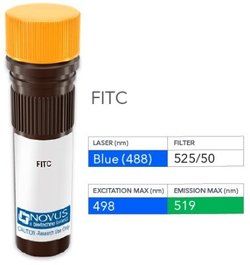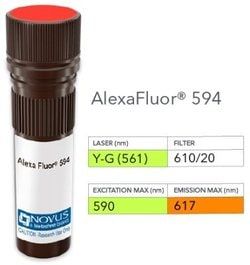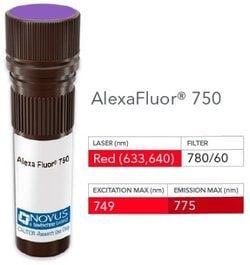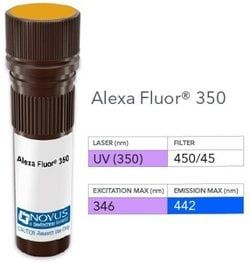EMMPRIN/CD147 Antibody (8D6), FITC, Novus Biologicals™
Manufacturer: Novus Biologicals
Select a Size
| Pack Size | SKU | Availability | Price |
|---|---|---|---|
| Each of 1 | NB006134-Each-of-1 | In Stock | ₹ 57,494.00 |
NB006134 - Each of 1
In Stock
Quantity
1
Base Price: ₹ 57,494.00
GST (18%): ₹ 10,348.92
Total Price: ₹ 67,842.92
Antigen
EMMPRIN/CD147
Classification
Monoclonal
Conjugate
FITC
Formulation
PBS with 0.05% Sodium Azide
Gene Symbols
BSG
Immunogen
Human T cell line Molt 13
Quantity
0.1 mL
Research Discipline
Cancer, Signal Transduction, Vision
Test Specificity
This monoclonal antibody recognizes extracellular epitope 2 within the N-terminal Ig domain of human CD147. It is expressed more intensely on thymocytes than on mature peripheral blood T cells. CD147 is important in spermatogenesis, embryo implantation, neural network formation, and tumor progression. It stimulates the production of interstitial collagenase, gelatinase A, stromelysin-1 and various metalloproteinases (MMPs) by fibroblasts. These enzymes are important factors in cancer invasion and metastasis.
Content And Storage
Store at 4°C in the dark.
Applications
Flow Cytometry, Immunohistochemistry, Immunocytochemistry, Immunofluorescence, Immunohistochemistry (Paraffin)
Clone
8D6
Dilution
Flow Cytometry, Immunohistochemistry, Immunocytochemistry/Immunofluorescence, Immunohistochemistry-Paraffin, Immunohistochemistry-Frozen
Gene Alias
5F7, basigin, basigin (Ok blood group), CD147, CD147 antigen, Collagenase stimulatory factor, EMMPRINTCSF, Extracellular matrix metalloproteinase inducer, Leukocyte activation antigen M6, M6, OK, OK blood group antigen, Tumor cell-derived collagenase stimulatory factor
Host Species
Mouse
Purification Method
Protein A or G purified
Regulatory Status
RUO
Primary or Secondary
Primary
Target Species
Human
Isotype
IgG1 κ
Related Products
Description
- EMMPRIN/CD147 Monoclonal specifically detects EMMPRIN/CD147 in Human samples
- It is validated for Flow Cytometry, Immunohistochemistry, Immunocytochemistry/Immunofluorescence, Immunohistochemistry-Paraffin.




